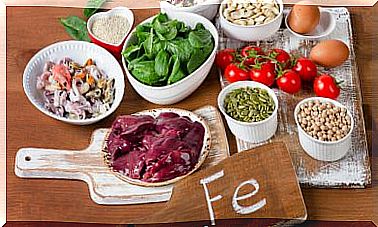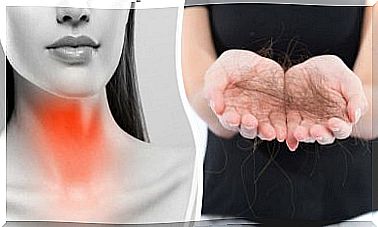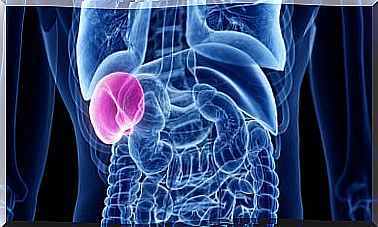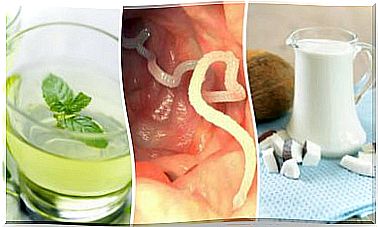3 Easy Ways To Cope With Hypothyroidism
Thyroid problems can decrease the quality of life. Although many overlook it, this gland intervenes in the functions of the vital systems of the body. Do you know how to deal with hypothyroidism? We share some keys that could help you.
Hypothyroidism is just one of the alterations that the thyroid can suffer. It is a condition whose main characteristic is the decrease in the production of thyroid hormones. This, in turn, triggers a series of symptoms that can be difficult to cope with without proper care.
Therefore, it is advisable to consult your doctor if you feel tired or have other symptoms, such as dry skin, bloating or constipation. The professional will recommend the therapy that he considers most appropriate according to the case.
What is it like to live with hypothyroidism?
Many people are diagnosed with hypothyroidism each year. It is a disease caused by an alteration of the thyroid gland, a change where the adequate amount of thyroid hormones stops being delivered to the body.
As a result of this, patients who suffer from it experience a series of changes in their health and their body. Its main symptoms include: weight gain, excessive hair loss, and extreme tiredness. They may also have skin changes and sudden mood swings.
The problem can get worse when timely care is not provided. Therefore, before its first manifestations, it is essential to receive a diagnosis and several treatment options. Adequate medical control allows you to cope with the condition without affecting your daily routines.
Below we want to share a series of keys that could be used to support hypothyroidism based on habits. Put it into practice now!
3 natural ways to cope with hypothyroidism
To cope with hypothyroidism, it is essential to follow medical recommendations. Depending on the severity with which it occurs, the professional may or may not suggest some medications. Now, in general, patients can improve their condition from their lifestyle.
1. Good nutrition

Without a doubt, diet is a good ally to deal with hypothyroidism and its symptoms. An adequate diet reduces the impact of the decrease in the production of hormones. Among the recommended foods are those that have iodine.
Thanks to this nutrient, thyroxine production is increased, reducing the deficit. So what foods should you choose? Some options are seafood, eggs, fish and iodized salt (but not overdo it). Kelp algae are also very healthy, but we should not abuse them either.
- Foods with omega 3 fatty acids are also very beneficial. Tuna, mackerel, oily fish, flaxseed oil, and walnuts will help you a lot. In addition, a study suggests that omega 3 could be useful as a neuroprotective agent against hypothyroidism-induced cognitive decline.
- Vitamins of group B: consume all those green leafy vegetables that you like the most, as well as brewer’s yeast that will also balance your thyroxine levels. Spinach, cauliflower, wheat germ, and dairy will make you feel good. On the other hand, there is a high prevalence of B12 deficiency in patients with hypothyroidism, so its consumption could provide benefits.
- Suitable fruits: There are beneficial fruits for the thyroid. Avocados, as healthy as ever, will provide you with a very interesting dose of vitamin B.
2. Medicinal herbs for hypothyroidism

The properties of some medicinal herbs are a good complement to deal with hypothyroidism in a natural way. It is believed that its components could promote hormonal balance and decrease the recurrence of the symptoms of this disease. Some options are:
- Hypericum: Do you know this plant? It is used for the side effects of hypothyroidism. It is believed that it could help reduce fatigue and improve mood. Consult your doctor in case of taking additional medication, as it interacts with some drugs.
- Passionflower: It could improve mood, anxiety, fatigue, reduce headaches and apathy, among others.
- Cayenne tea: Cayenne could help to activate the body and blood circulation, relieving the cold sensation so common in these cases. Just a pinch of powder in a glass of boiling water is enough.
3. Psychological strategies

Psychological support is key in many patients who do not know how to overcome the changes that hypothyroidism brings. Many people manage to cope and maintain a good quality of life. Others, on the other hand, must go through tedious processes before feeling balanced again.
The disease can come hand in hand with problems with self-esteem and anxiety, as body weight changes and mood decreases. It is essential to have constant family and social support, since it is decisive to know that it can be overcome.
Exercising, meditating, and going to therapy can help treat this problem. The more healthy habits the patient adopts, the more likely they are to maintain a normal rhythm of life. Remember that the main thing is to follow the recommendations of the specialist.








